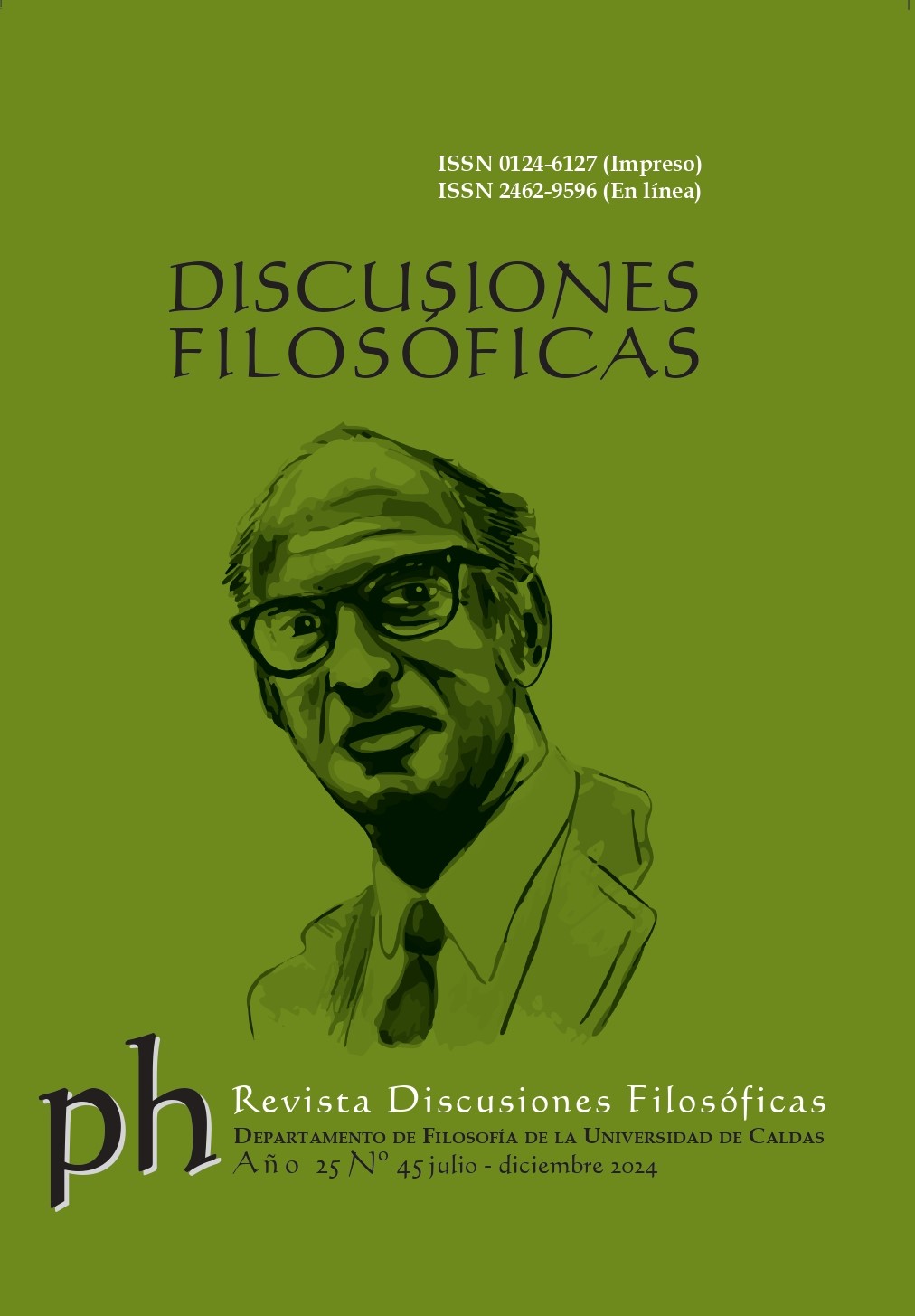Authors
Abstract
In this text, the author defends the rationality (acceptability) of antirealism, because he considers the idea of an independent reality as alien and transcendental. Furthermore, following Davidson, the author argues that all philosophy is a form of antirealism, because it is always a skewed understanding of reality. The author indicates that reality is the set of ‘what we know’ and it is not the pure idea of ‘the external’. However, ‘what we know’, with our possibilities and limitations, is one possibility among others. Following Giere, the author argues that reality, as we know it, is contingent, because reality is always a perspective.
References
Science. (49-67). Springer.
Alai, M. (2017). The Debates on Scientific Realism Today. En Agazzi, E.(ed.). Varieties of Scientific Realism. Objetivity and Truth in Science. (19-48). Springer.
Borge, B. (2015). Realismo científico hoy. A 40 años de la formulación del argumento del no-milagro. Acta Scientiarum. Human and Social Science, 37(2), 221-233. 10.4025/actascihumansoc.v37i2.26933
Bunge, M. (2007). A la caza de la realidad. La controversia sobre el realismo. Gedisa.
Colomina-Almiñana, J. (2022). A defense of a weak linguistic relativistic thesis. Lenguage Science, 94. doi.org/10.1016/j.langsci.2022.101512.
D’agostini, F. (2018). ¿Realismo? Una cuestión no controvertida. Rialp.
Davidson, D. (2003). El indeterminismo y el antirrealismo. Subjetivo, intersubjetivo, objetivo. (110-129). Cátedra.
Dieguez, A. (2005). Realismo y antirrealismo en la filosofía de la biología. Laudus Vitalis, XIII(23), 49-71. http://ludus-vitalis.org/html/
textos/23/23-03_dieguez.pdf
Fahrbach, L. (2011). How the Growth of Science ends Theory Change. Synthese, 180 (2), 139-155. 10.1007/s11229-009-9602-0
Giere, R. (2006). Scientific Perspectivism. The University Chicago
Haack, S. (2016). Defendiendo la ciencia, dentro de la razón. Contrastes. Revista Interdisciplinar de Filosofía. Suplemento III (1998) “Filosofía actual de la ciencia”, 37-56. doi.org/10.24310/Contrastescontrastes.v0i0.15206
Hacking, I. (1983). Representing and Intervening. Introductory Topics in the Philosophy of Natural Science. Cambridge University.
Hardin, C. & Rosenberg, A. (1982). In Defense of Convergent Realism. Philosophy of Science, 49(4), 604-615. doi.org/10.1086/289080
Howson, C. (2013). Exhuming the No-Miracles Argument. Análisis, 73(2), 205-211.
Islas, D. (2019). El Realismo científico y la inducción pesimista. Un debate abierto. Revista de filosofía UIC, 18(2), 53-69. doi.org/10.1086/289080
Orozco, R. (2000). Rol y futuro de la filosofía. Letras, 86(124), 325-345. http://revista.letras.unmsm.edu.pe/index.php/le/article/
view/307/302
Psillos, S. (2000). The Present State of the Scientific Realism Debate. The British Journal for the Philosophy of Science, 51, 705-728. doi.org/10.1093/bjps/51.4.705
Putnam, H. (1975). Mathematics, Matter and Method. Vol 1. Cambridge University.
Putnam, H. (2019). Las mil caras del realismo. Paidós.
Quintanilla, P. (2019). La comprensión del otro. Explicación, interpretación y racionalidad. Fondo Editorial PUCP.
Sankey, H. (2015). Ciencia, realidad y racionalidad. Editorial Universidad del Cauca.
Searle, J. (1997). La construcción de la realidad social. Paidós.
Wray, B. (2013). The pessimistic induction and the exponential growth of science reassessed. Synthese. 190(18), 4321-4330.
doi.org/10.1007/s11229-013-0276-2

 PDF (Español)
PDF (Español)
 FLIP
FLIP





























